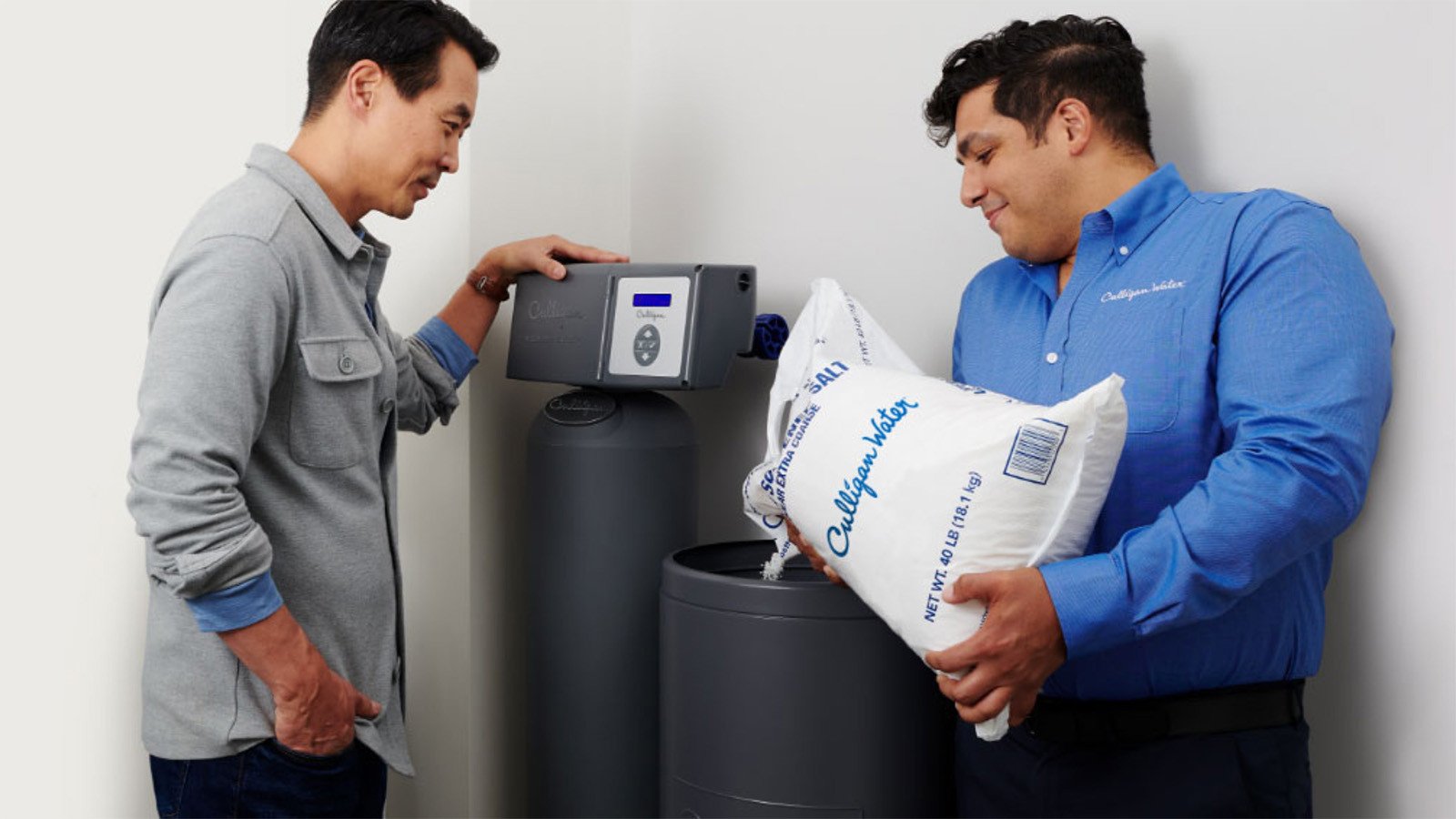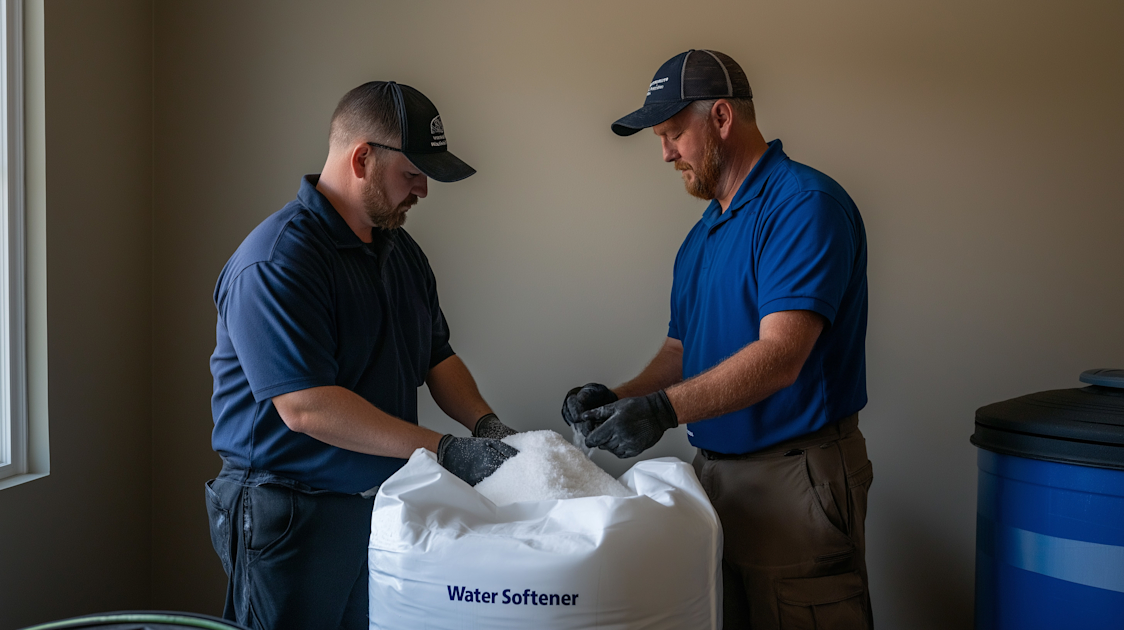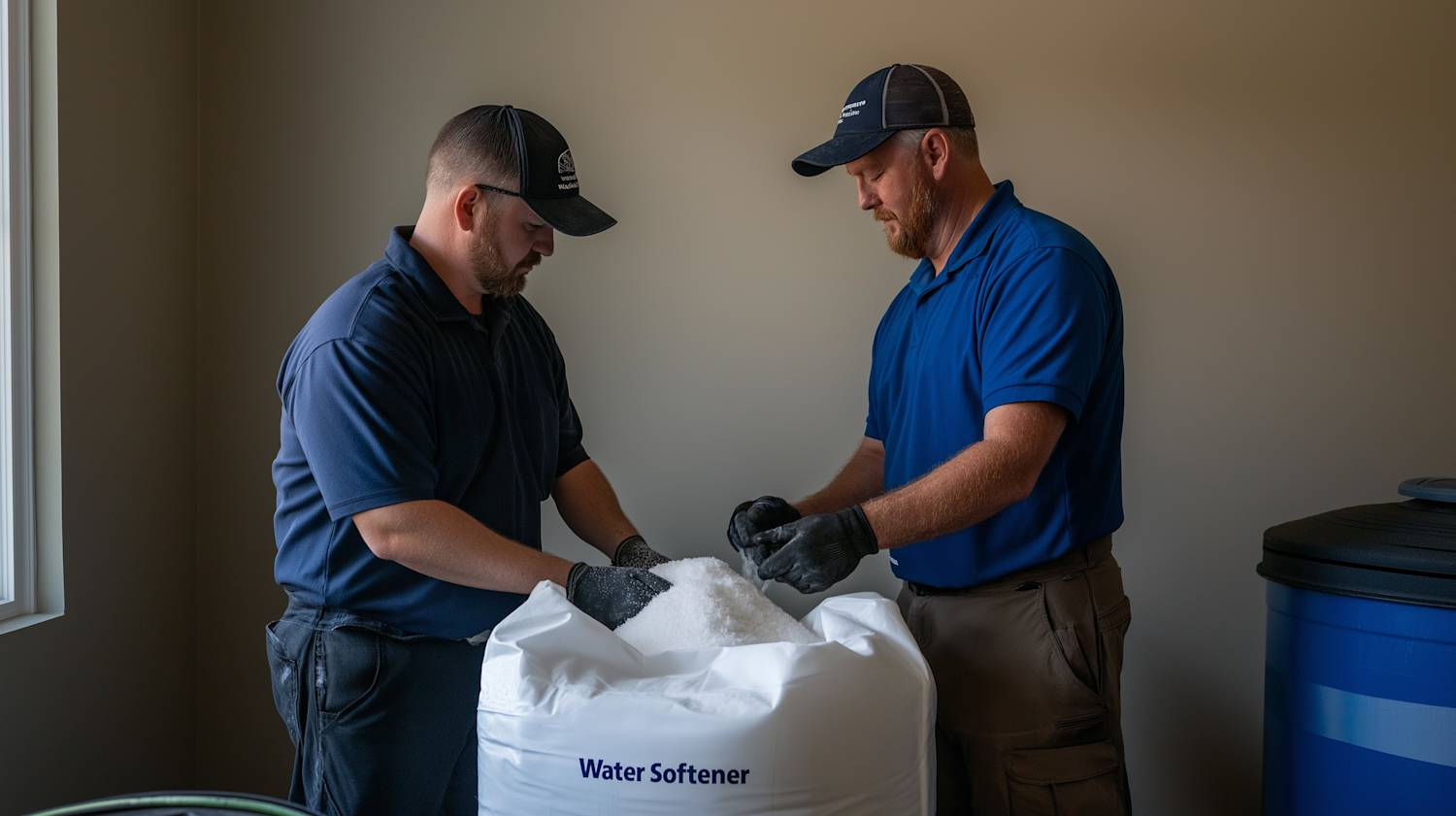If you have hard water in your home, you're probably familiar with the issues it causes—dull hair and skin, reduced lifespan of appliances due to scale buildup, and soap not lathering properly. The good news is that water softening systems can effectively solve this problem. A critical part of most water softening systems is the water softener salt. In this article, we'll explore everything you need to know about water softener salt, from what it is, how it works, to how to choose the best one for your needs.
Understanding Hard Water and Its Issues
Hard water typically contains a high proportion of dissolved minerals, primarily calcium and magnesium. Although not harmful to human health, these minerals can cause a variety of problems in our daily life. For instance, they interfere with the cleaning power of detergents and soaps, leaving film and spots on dishes and making laundry dull and stiff. They also cause buildup on fixtures and inside pipes, resulting in decreased water flow and reduced appliance efficiency. Over time, this scale buildup can shorten the lifespan of appliances like water heaters, dishwashers, and coffee makers.
Role of Water Softener Salt in Water Softening Systems

Most water softening systems use a technique called ion exchange to soften hard water. This is where water softener salt plays a fundamental part. The system contains resin beads charged with sodium ions. As hard water passes through the resin bed, the calcium and magnesium ions get attracted to the resin, displacing the sodium ions, which then go into the water. The end result? Softened water devoid of hardness ions.
Types of Water Softener Salts
Despite the term 'water softener salt', not all salts used in water softener systems are the same. There are primarily two types of salts used—rock salt and evaporated salt.
Rock Salt
As the name suggests, rock salt is mined from underground salt deposits. It has a high concentration of insoluble impurities or contaminants, and, compared to other types of salt, it’s less effective at displacing hard water ions.
Evaporated Salt
This is the purest form of salt—around 99.9% sodium chloride. It's made by evaporating seawater or underground brine until only the salt remains. Since it's purer, it’s more effective at displacing hard water ions and leaves less buildup in the softener tank.
Choosing the Right Water Softener Salt for Your Home
-
Cost: While rock salt is usually cheaper, it might not be cost-effective in the long run as it requires more frequent maintenance and replacement.
-
Purity: Choose a higher purity salt like evaporated salt that leaves less residue in the brine tank, making your system easier to maintain and more efficient.
-
Pellet or Crystal: Choose water softener salt in a form that suits your system and personal preference—whether it's pellet or crystal format. Generally, salt pellets are recommended for most water softener systems.
-
Environmentally friendly options: If you're concerned about your environmental footprint, consider using potassium chloride as an alternative to conventional salt. It performs a similar function but is more environmentally friendly.
Maintenance and Using Water Softener Salt Efficiently
Regular cleaning and refilling of the brine tank with water softener salt is crucial to maintain the effectiveness of your water softening system. Make sure to check the salt level in your tank at least once a month and refill it when it gets to one-third full.
Some Quick Tips
-
Check for salt bridges: A hardened layer of salt can sometimes form in the tank, known as a salt bridge. This prevents the salt from dissolving in the water, making the system ineffective. If you notice a salt bridge, break it up with a broom handle or a similar tool.
-
Regularly clean the brine tank: Over time, sediment can build up in the brine tank which needs to be cleaned out. A good rule of thumb is to clean the tank annually.
Water softener salt plays a vital role in the effectiveness of your water softening system. Understanding its role and how to maintain it will ensure you get the most out of your system, providing your home with soft water for years to come.
Frequently Asked Questions About Water Softener Salt
Why do I need water softener salt?
Water softener salt is an integral part of most water softening systems as it helps to remove hardness-causing minerals from your water. These minerals can lead to various issues such as scale build-up on your plumbing and appliances, skin and hair dryness, and faded laundry.
What are the types of water softener salt?
There are typically three types of water softener salts: rock salt, solar salt and evaporated salt. Rock salt is mined from underground salt deposits and has a high level of insoluble minerals. Solar salt, derived from evaporated sea water, has a higher solubility than rock salt. Evaporated salt, the purest form, is obtained through a process of mining followed by evaporation.
How often should I refill my water softener with salt?
The frequency with which you need to refill your water softener salt tank depends on several factors including the hardness of your water, the size of your water softening system, and the quality of the salt used. However, a good rule of thumb is to check your salt level once a month.
What kind of salt should I use for my water softener?
The best salt to use often depends on the type of water softening system you have. For systems with a low salt usage, higher purity salts like evaporated salt may be best as they leave less residue. Solar and rock salt are typically suitable for systems with higher salt usage.
Can I use table salt instead of water softener salt?
Table salt is not advisable to use in water softener systems because it does not have the properties necessary to 'soften' hard water and may cause damage to your water softener.
Does using water softener salt affect my drinking water?
Though most of the salt used in the softening process is flushed out during the regeneration phase, a minute amount may remain in the water. However, it's typically not enough to significantly alter the taste or health benefits of your drinking water.
Does water softener salt expire?
When stored properly, in a cool and dry place, water softener salt does not expire or lose its effectiveness. However, if exposed to moisture, it can harden or form a crust which can hinder its efficiency.
Is potassium chloride a good alternative to water softener salt?
Yes, potassium chloride is a popular alternative for those who are concerned about sodium intake or have environmental concerns. However, it is typically more expensive and may not be as efficient as sodium-based salts in extreme hardness conditions.
Can I mix different types of water softener salts?
It is generally recommended not to mix different types of salts as this can lead to complications and even damage your water softening system. However, if you are transitioning from one type of salt to another, make sure to allow the salt level to get low before adding the new salt.
Where can I buy water softener salt?
Water softener salt can be purchased from most home improvement stores, grocery stores, online retailers and even some convenience stores. Always ensure to buy from reputable sources to guarantee the quality of your salt.
Pros and Cons of Water Softener Salt
Pros of Water Softener Salt
1. Effectiveness in Softening Water
- Water softener salt is incredibly effective in minimizing the hardness of water. It effectively replaces calcium and magnesium ions, the primary culprits behind water hardness, with sodium ions. This process, known as ion exchange, significantly lowers the hardness of your water.
2. Prolonged Appliance Lifespan
- By using a water softener salt, you can prolong the life of your household appliances. Hard water can cause mineral build-up in appliances such as washing machines, dishwashers, and water heaters. This build-up can degrade performance over time and ultimately shorten the appliance's lifespan. Water softened with salt helps to prevent this accumulation, extending the life of your appliances.
3. Healthier Skin and Hair
- Removing the minerals from your water using water softener salt can lead to healthier skin and hair. Hard water can often lead to dry skin and hair due to the mineral residue it leaves behind. However, by using water treated with water softener salt, you may notice improvements in the health and feel of your skin and hair.
4. Prevents Soap Scum and Mineral Stains
- If you've ever noticed stubborn soap scum in your bath or shower, or mineral stains in sinks and toilets, it's likely due to hard water. Installing a salt-based water softener can help prevent these issues. Softer water allows soap and detergents to fully dissolve, thereby reducing soap scum and stains.
Cons of Water Softener Salt
1. Sodium Content
- One of the more prominent drawbacks of water softener salt is the increased sodium content in your water. Although this generally isn't a problem for most people, it can be a concern for those on low-sodium diets. It's important to note that while the sodium content of softened water can be higher, it rarely reaches levels that are hazardous to human health.
2. Maintenance and Cost
- Maintaining a water softener system that uses salt can be time-consuming and costly. The salt must be replenished on a regular basis, and the system itself needs to be serviced regularly to maintain its function. Moreover, the initial cost of the system can be quite high. Over time, these factors can add up.
3. Environmental Impact
- A significant downside to water softener salt is its environmental impact. The process of water softening releases sodium and chloride ions into wastewater. These ions can be harmful to the local aquatic environment because they are difficult to remove from water.
4. Not Suitable for Drinking
- Although water softened with salt is safe for most household uses, many do not find it suitable for drinking or cooking due to the slightly salty taste. This necessitates a separate filtration system for drinking water which can result in further costs.
In conclusion, while water softener salt is beneficial for many reasons including prolonging the life of appliances, improving skin and hair health, and preventing soap scum, it also comes with drawbacks such as increased sodium content, maintenance needs, environmental effects, and a less pleasing taste. Considering these factors will help in deciding whether the pros outweigh the cons in your unique situation.
Summary
Choosing the right type of water softener salt can significantly impact the functionality and longevity of your water softening system. Whether you opt for rock, solar, or evaporated, the best choice is one that optimizes softener performance, reduces buildup, and ultimately enhances your water quality. Just remember to regularly check and refill the salt levels to maintain efficiency of your unit.
Secondly, the environmental impacts of water softener salt are unquestionable. These systems discharge salt into our local water supplies during the regeneration process which can affect our local ecosystems. A reasonable solution is using potassium chloride as a substitute, or investing in salt-free water softeners. It’s a small switch that makes a big difference in reducing harmful ecological effects.
Lastly, the health implications of using water softener salt cannot be ignored. For individuals struggling with high blood pressure or kidney complications, the added sodium in the water can pose health risks. However, this issue can be resolved by using potassium chloride as an alternative salt or using a reverse osmosis system for your drinking water. Always make sure to put your health first when choosing a water softener salt.
About KYPD Plumbing
Welcome to KYPD Plumbing, your trusted local plumber in Nicholasville, KY. We have been serving our community with top-notch plumbing services for years. Our skilled and professional team is dedicated to resolving all your plumbing issues, no matter how big or small. Whether you need routine maintenance, emergency repairs, or a whole new plumbing installation, you can count on KYPD Plumbing to get the job done right. We believe in delivering not just high-quality results, but also in providing exceptional customer service and a truly stress-free experience.
Tags: Water Softener, Salt, Home Maintenance,














